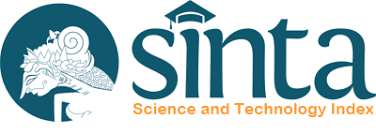Abstract
Current account balance has an important role of measuring the direction and the amount of international loan. This study analyzes Indonesian external balance due to its solvency condition of external debt and sustainability of current account balance during 1970-2007 by intertemporal-model approach of current account. The results of cointegration test and bivariate autoregressive (VAR) indicate that solvency condition holds, but not for the sustainability condition of current account balance. It means that Indonesia has capability to payback its external debt.
Bahasa Abstract
Dalam hubungannya dengan utang luar negeri, transaksi berjalan mempunyai peranan penting karena mengukur arah dan besarnya pinjaman internasional. Tulisan ini menganalisis mengenai keseimbangan eksternal Indonesia dengan melihat pada solvency condition atas utang luar negeri dan sustainabilitas neraca transaksi berjalan dengan pendekatan intertemporal model of current account. Data yang digunakan adalah time series tahunan periode 1970-2007. Hasil estimasi menunjukkan bahwa solvency condition Indonesia terpenuhi, artinya Indonesia berada dalam kemampuan membayar kembali utangnya, namun kondisi sustainabilitas neraca transaksi berjalan tidak tercapai.
References
[1] ADB. (2008). Key Indicators for Asia and the Pacific 2008. http://www.adb.org/sites/ default/files/KI/2008/INO.pdf (Accessed 15 April, 2012).
[2] Adedeji, O. S. (2001). The Sise and Sustainability of Nigerian Current Account Deficits. IMF Working Paper, WP/01/87. http: //lnweb90.worldbank.org/CAW/CAWDoclib.nsf/ 0/74740A6525844B1085256C72007F5C7E/$file/ wp0187.pdf. (Accessed 15 April, 2012).
[3] Callen, T. & Cashin, P. (1999). Assessing External Sustainability in India. IMF Working Paper, WP/99/181. http://www.imf.org/ external/pubs/ft/wp/1999/wp99181.pdf (Accessed 15 April, 2012).
[4] Campbell, J. Y. & Shiller, R. J. (1987). Cointegration and Tests of Present Value Models. Journal of Political Economy, 95 (5), 1062-1088. http://dash.harvard.edu/bitstream/ handle/1/3122490/campbell_cointegration. pdf?sequence=2 (Accessed 15 April, 2012).
[5] Friedman, M. (1957). The Permanent Income Hypothesis. In Milton Friedman, A Theory of the Consumption Function. pp. 20-37. Princeton University Press.
[6] Hudson, S. & Stennett, R. (2003). Current Account Sustainability in Jamaica. Bank of Jamaica Working Paper, WP 02/11 Draft. http://boj.org.jm/uploads/pdf/papers_ pamphlets/papers_pamphlets_current_ account_sustainability_in_jamaica.pdf (Accessed 15 April, 2012).
[7] IFS. (2008). International Financial Statistics. [CD ROM]. Washington, D. C.: International Monetary Fund. Statistics Dept
[8] Kim, K., Hall, V. B., & Buckle, R. A. (2001). New Zealand's Current Account Deficit: Analysis based on the Intertemporal Optimisation Approach. Treasury Working Paper, 01/02. http://www.treasury.govt.nz/publications/ research-policy/wp/2001/01-02/twp01-02.pdf (Accessed 15 April, 2012).
[9] Krugman, P. R. & Obstfeld, M. (2005). Ekonomi Internasional: Teori dan Kebijakan. Edisi kelima. Edisi Bahasa Indonesia. Jakarta: PT INDEKS kelompok Gramedia.
[10] Lau, E., Baharumshah, A. Z., & Habibullah, M. S. (2007). Accounting for the Current Account Behavior in ASEAN-5. Munich Personal RePEc Archive, 1322. Germany: University Library of Munich.
[11] Obstfeld, M. & Rogoff, K. (1995). Foundation of International Macroeconomics. Cambridge, MA.: Massachussets Institute of Technologi.
[12] Okojie, C. E. E. (2005). Capital Flows and Current Account Sustainability: The Case of Nigeria. Ethiopia: United Nations Economic Commission for Africa (ECA).
[13] Opoku-Afari, M. (2007), Capital Flows and Current Account Sustainability: The Ghanaian Experience. CREDIT Research Paper, 07/07. England, UK: Centre for Research in Economic Development and International Trade, University of Nottingham. http://www.nottingham.ac.uk/ credit/documents/papers/07-07.pdf (Accessed 15 April, 2012).
[14] Tambunan, T. (2006). Perekonomian Indonesia Sejak Orde Lama Hingga Pasca Krisis. Jakarta: Pustaka Quantum.
Recommended Citation
Nurmalindah, Nurmalindah and Safuan, Sugiharso
(2013)
"Analisis Keseimbangan Eksternal Indonesia: Pendekatan Intertemporal Model of Current Account,"
Jurnal Ekonomi dan Pembangunan Indonesia: Vol. 13:
No.
2, Article 6.
DOI: 10.7454/jepi.v13i2.1337
pp.196-213
Available at:
https://scholarhub.ui.ac.id/jepi/vol13/iss2/6







